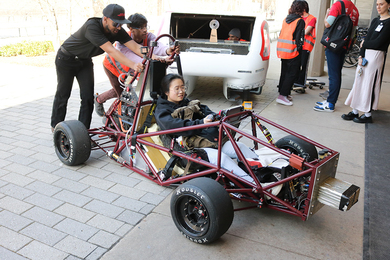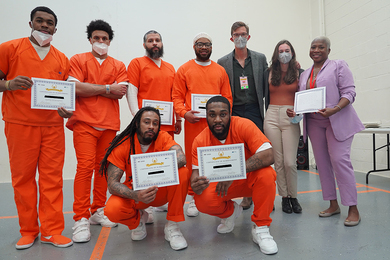MIT next week will urge the U.S. Supreme Court to review an intellectual-property case that the Institute says could have an adverse impact on a well-established technology-transfer system that produces extraordinary benefits to the nation and to the world.
MIT's Office of the General Counsel will file an amicus curiae, or "friend of the court," brief with the nation's top court on Monday, April 26, in the case, Stanford University v. Roche Molecular Systems, Inc., et al. MIT argues that the case, which deals with a patent dispute, could jeopardize the important relationship between the federal government and research universities - a relationship that is widely credited with fostering America's technological and economic leadership over the last half-century.
Senior administrators said MIT, which is not a party to the case, is taking the unusual step of getting involved because the issues raised in the case go to the heart of the Institute's culture and success.
"MIT is an undisputed leader when it comes to transferring research breakthroughs into products and services that benefit the world, and it is therefore fitting that the Institute add its voice in this important case," said Lita Nelsen, director of MIT's Technology License Office.
The brief argues that the case threatens to undermine the Bayh-Dole Act, a federal law that has played a central role in America's system of innovation. Enacted in 1980 as an amendment to the Patent Act, Bayh-Dole expanded and accelerated the transformation of ideas in the lab into the products, jobs and revenues of commercial enterprise.
Under Bayh-Dole, universities are allowed to retain title to patents that result from innovations developed with federal funding. The schools may file patents on the inventions they own, and may grant exclusive rights to private companies.
The Economist has referred to Bayh-Dole as "perhaps the most inspired piece of legislation to be enacted in America over the past half-century." But the success of Bayh-Dole is threatened by a federal appellate court's recent ruling in Stanford v. Roche, MIT's brief argues.
In that case, Stanford University sued Roche in 2005 for patent infringement. A federal district court denied Roche's claim that it owned the intellectual property in question, but the appeals court disagreed, saying that Stanford lacked complete ownership of the patents due to the specific wording of an agreement that Stanford requires all of its researchers to sign.
The MIT brief says that the appellate court's decision and its formalistic reading of the Stanford agreement were wrong because the court failed to consider the "clear sequence of ownership rights" defined by Bayh-Dole. "Had the court considered the import of the Bayh-Dole Act to the federal question of patent assignments, the court would have found that the chain of title led to Stanford and stopped there," the brief says.
The brief says that if the appeals court ruling stands, it could divert the ownership of patents away from universities and the federal government. The brief asks that the Supreme Court agree to review the case; at a minimum, the brief says, the Supreme Court should ask the federal government to weigh in on the matter.
Institute will support Stanford in asking U.S. Supreme Court to review dispute that could undermine technology-transfer system.
Publication Date:

Caption:
The U.S. Supreme Court





